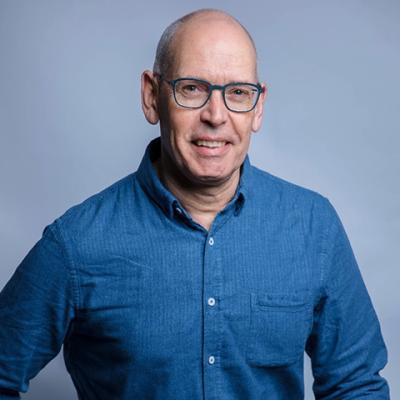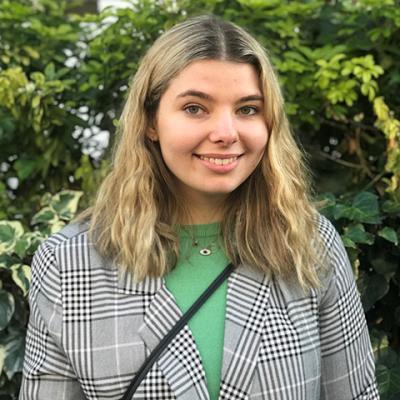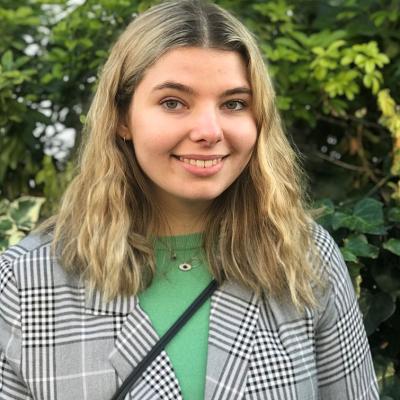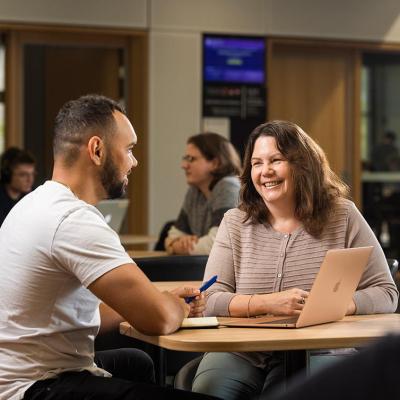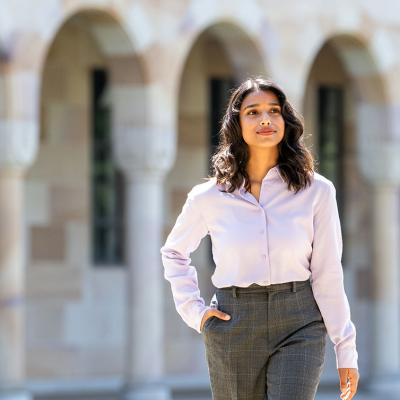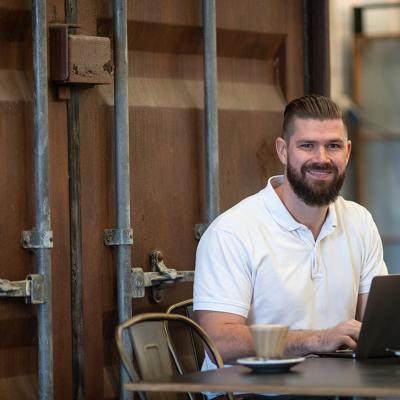Jessica Rowen, a Master of Writing, Editing and Publishing (WEP) student at UQ, explores why she’s doing a pandemic master’s – featuring insights from Dr Richard Newsome, Director of the WEP program.
At the end of a 4-year bachelor’s degree, every new graduate will experience a series of highs and lows. There is a massive cause for celebration that years of hard work brings, but there is also the dreaded question every newly graduated student will ask themselves: what next?
Everybody will evaluate their next step differently. Returning to study is not an easy choice to make, and entering the workforce right away is not always the right next step.
All these heightened emotions were worsened when the pandemic began. The question of “what next?” became unanswerable for many people. We simply didn’t know what was to come or what to do next. Before, many might have taken some time off to travel or found work overseas. Instead, we had to turn inward and ask not what was next but what would help us after the pandemic passed.
Making the choice
While the decision to return to study wasn’t an easy one for me to make, it wasn’t as hard as deciding what to study.
Deciding what postgraduate pathway was best for me was the hardest part, as I was interested by so many different things. I had majored in English and Professional Writing during my undergraduate degree, and I knew those skills were invaluable to whatever I applied them to. Yet I wasn’t sure what career I wanted. However, I was assured time and time again that I didn’t need to know exactly what I wanted to do if I stayed positive.
So, I weighed my options. I considered what the differences of being an undergraduate vs a postgraduate student would be.
What’s the difference between an undergraduate and a postgraduate?
In many ways, not much. An undergraduate and a postgraduate degree are similar. But the biggest difference for me was that I could study a master’s with flexible study options and that I didn’t feel anxious about having 4 years ahead of me, but instead 1.5. Better still, many online postgraduate courses were now available with the accessibility Zoom teaching afforded.
Richard Newsome, Director of the Writing, Editing and Publishing (WEP) program echoes a similar sentiment, noting the value postgraduate study can bring in the post-pandemic world.
“Good writing skills never go out of fashion; the positive ripple effects of mastery over the written word are well established,” he says.
“Improved critical thinking, better empathy, enhanced clarity in communication… the productivity value of effective plain writing and language use cannot be overstated.”
“There are positive career aspects and job opportunities in publishing and corporate writing and editing, but the skills someone picks up in WEP can go well beyond the creative industries.”
Why now?
Admittedly, I wasn’t sure what to do next in the early days of the pandemic.
I had returned from living abroad at the drop of a hat and was now faced with the looming “what next?”. I felt that for all my steps forward I was now back at square one. So, I began to think of these uncertain times as a period to reset and rethink my career path.
What I hadn’t yet realised is just how much UQ postgraduate study would change my life. In many ways, my uncertainty became an asset I could wield. Because I didn’t know exactly what to do, returning to study felt like a smart use of my time that could lead somewhere until I felt able to plan for the future again.
Post 2020, Richard says he noticed an increase in new enrolments in the UQ Writing, Editing and Publishing program.
“Enrolments in 2021 were up sharply from the year before,” he says.
“For the master’s it was nearly 20%, and for the graduate certificate it was more than 30%. Enrolments have been on the rise since 2017, particularly for the master’s, but the jump in 2021 was well above trend.”
It appears during the pandemic a lot of people considering postgraduate study asked themselves, if not now, then when?
Why study postgraduate?
The answer will be different for everyone. Much like “what next?”, the reasons we study are varied.
Richard believes there are many different factors to this decision.
“People enrol in the WEP program for all sorts of reasons,” he says.
“It might be to pursue a passion project – to finally write that novel – or to enhance professional writing and editing skills to help in their career.”
“I think the pandemic has had the dual effect of helping people clarify their individual rationales and then spurring them into taking action.”
As for me, I returned to study because I love routine and structure, plus I knew I’d learn valuable skills and make connections in the course. I also felt secure knowing that if I was worried or overwhelmed at any time, it wouldn’t be for nothing.
At UQ, postgraduate courses are wide-ranging and versatile, and no two days are the same. I could begin my Master of Writing, Editing and Publishing with an open mind, knowing if I felt overwhelmed at any time I could finish earlier and get a graduate certificate instead. No matter what, my time returning to study was going to be valuable and worthwhile.
Parting advice
While the decision is solely your own, I know it’s not always easy to make that leap of faith.
But please don’t be afraid of returning to study. You will meet tons of new people, develop great skills and learn a lot. It can seem daunting to make such a big decision, but it’s so worthwhile.
Richard agrees.
“So much about learning comes from that Socratic practice,” he says.
“Speak up. Ask questions. Share opinions. Be receptive to new ideas. Challenge old ideas. Engage constructively.”
Interested in sharpening your writing skillset and standing out in the job market? Discover more about studying a UQ Master of Writing, Editing and Publishing.


